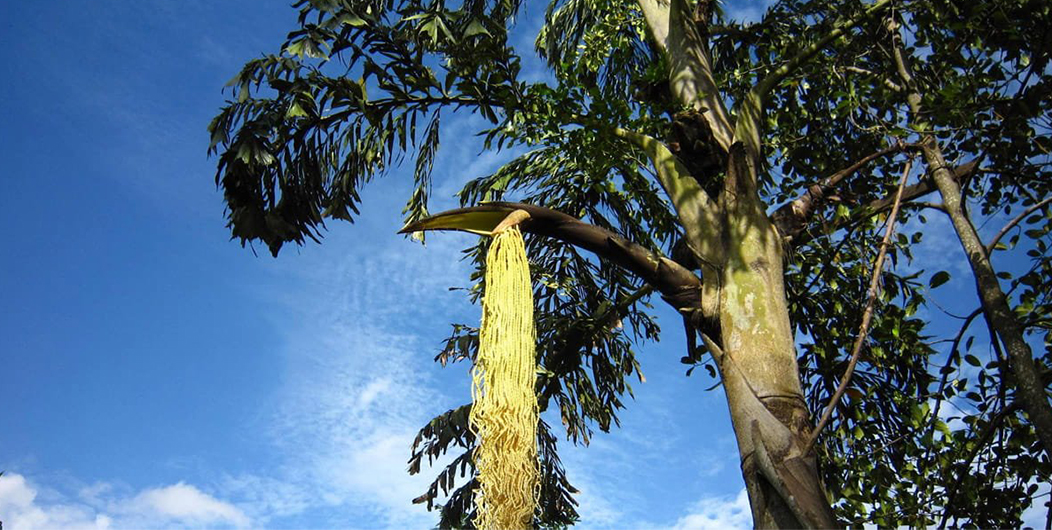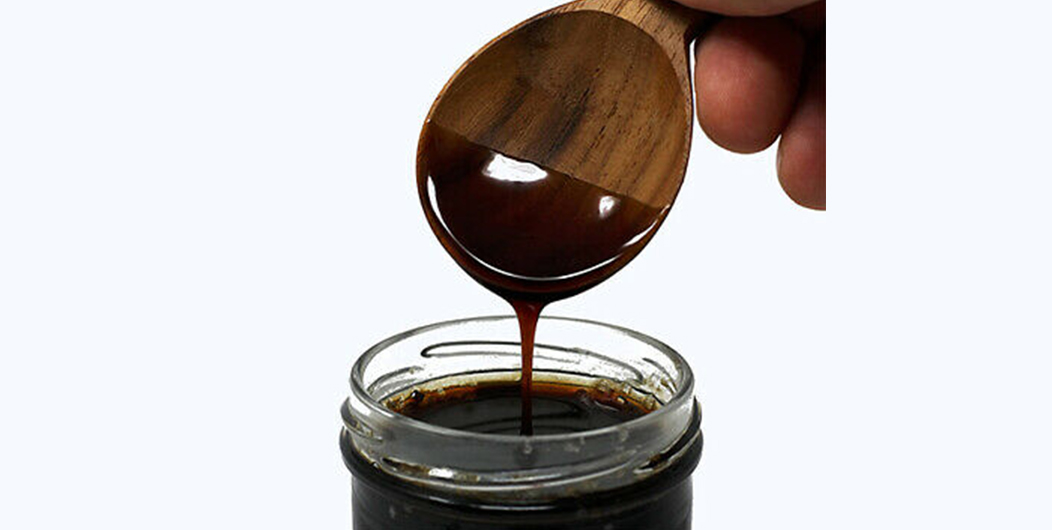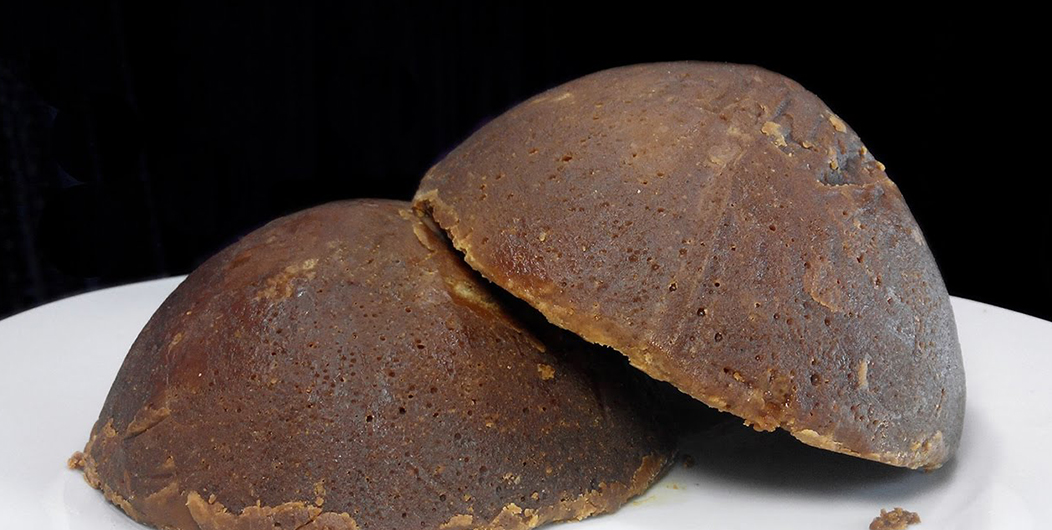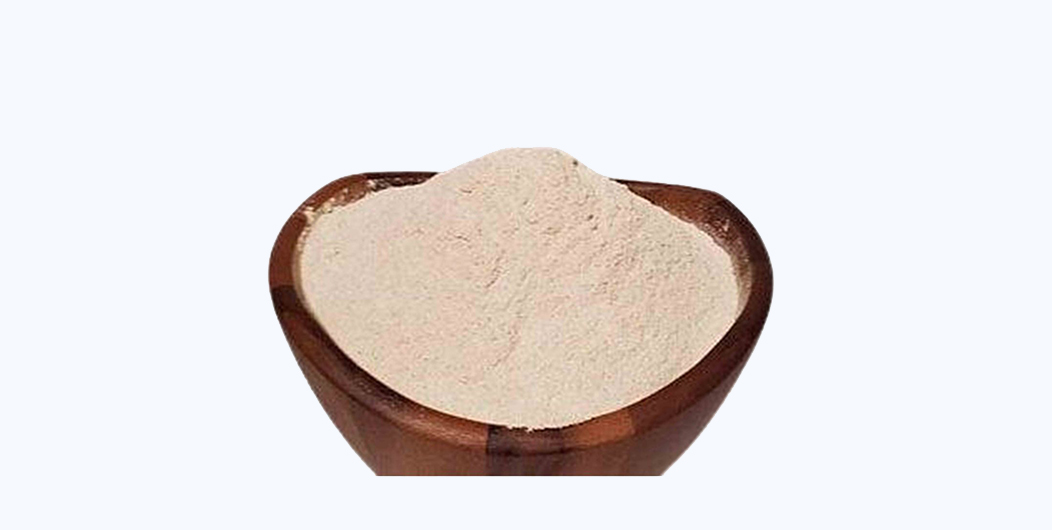
| Kithul Treacle | Kithul Jaggery | Kithul Flour |
Jaggery palm or fishtail palm is nothing uncommon in Sri Lanka. While the jaggery palm flourishes in the wet zone, which is the central highlands of Sri Lanka, it’s scattered in the rest of the country too except in the driest parts of the island.
The commercial production of jaggery palm-based products for both domestic consumption and export takes place mainly in the central regions. The making of Kitul products in Sri Lanka in these regions is steeped in tradition. But today the demand for Kitul products far outstrips the supply. Behind the scarcity of Kithul products there are several reasons such as the shortage of tappable jaggery palms, fewer people being engaged in this industry due to the inherent risks, tremendous efforts and relatively insignificant rewards involved, and the long period it takes for a jaggery palm to mature and fit for being tapped.

Kithul treacle is produced by heating the sap of the kithul flower and it’s a great natural sweetener with low GI that creates huge demand locally as well as overseas.
Kithul treacle or syrup is often used as a sweetener in traditional desserts like curd and treacle, a buffalo milk curd with palm treacle drizzled on top. Kithul treacle is also used as a sweetener in Sinhalese and Tamil New Year treats like kavum, aluwa, aasmi, walithalapa, Pongal, paniyaram, Sri Lankan pancakes, and other delicacies.
Kithul treacle is known to contain polyphenols which are antioxidants, organic acids which are bioactive, amino acids that have many functions, beta carotenes that cause to produce vitamin A and ascorbic acid or Vitamin C that improves immunity. Thus, it’s known to yield as many health benefits as kithul jaggery. It prevents arthritis, improves complexion, alleviates constipation, aids weight loss and combats blood sugar.
For nearly the same reasons as the kithul jaggery, kithul treacle or syrup is witnessing massive demand locally as well as internationally.

Kitul jaggery is produced by boiling the collected sap of a kitul flower over an open woodfire hearth. To make jaggery, it must be boiled beyond the point it turns to treacle so that it thickens further and then it should be poured into the moulds typically fashioned out of coconut shells, which explains their typical shape.
Softer in texture with sweetness and melting quickly, kithul jaggery is widely known to be a much healthier alternative to refined sugar used with tea and other drinks and as a sweetener in a great number of sweetmeats. Kithul jaggery is served with tea and other herbal infusions and is also used as a sweetener in some delicacies such as ice cream and cake. It’s a key ingredient used in jaggery toffees and jaggery cake as well. Kithul jaggery is used in the making of alcoholic beverages such as palm wine too. It’s also essential for the Muslim community who observe Ramadan, one of their religious festivals and break their fast with a piece of jaggery with congee.
Such is its medicinal value that it’s often used in Ayurveda with other ingredients to prepare medications to treat many ailments. The glucose and fructose content in the kithul jaggery is extremely low and as a result in the Glycaemic Index or GI, it’s ranked as a low GI food. What this means is it takes longer to digest than refined and doesn’t, therefore, deliver the rush of energy that the latter does. Thus, it has earned the name ‘superfood sweetener’. It’s safe enough to be recommended to even diabetic patients. Besides that, it’s also known to prevent constipation by aiding digestion by activating the digestive enzymes in our body. It’s also a detoxicant that helps cleanse the liver.
Kithul Jaggery is rich in antioxidants and calcium, minerals, salts and fibre. Regular consumption of kithul jaggery can improve haemoglobin levels and treat anaemia. Magnesium, on the other hand, regulates the nervous system and minerals like selenium and zinc help protect body cells against damages caused by free radicals (responsible for early ageing). It’s coupled to help boost resistance against infections and improve the immune response of your body.
Eating a piece of jaggery daily can help women combat PMS (Premenstrual Syndrome) symptoms including mood swings, menstrual cramps, and abdominal pain.
Because it has such a unique taste because it’s a healthier alternative to refined sugar and because it offers a whole range of health benefits, the demand for kithul jaggery has steadily been on the rise locally as well as internationally.

Kitul flour is extracted from the core of the kitul trunk through a complex traditional process. The edible flour is deposited inside the trunk of the kitul tree, and it’s believed that the jaggery palms that yield sap don’t contain starch.
In extracting flour, first, a kitul tree is felled. Then, the pieces of pith are removed from the trunk. After that, the pith is cut into small pieces and crushed using mortar and pestle. Next, a pot is filled with water and a clean cloth is tied to its mouth, which will serve as a rudimentary filter. Then the pounded pith is mixed with water and allowed to strain through the cloth to the pot. After some time, the flour settles down on the bottom of the pot. It is sun-dried to make kithul flour. This is known as the wet method of kithul flour production.
However, some manufacturers still follow the dry method of kitul flour preparation where portions of pith are dried, pounded and sieved through a household strainer.
Yet the traditional method of Kitul flour production is hardly sufficient to meet the current demand, so it’s essential to invent a more effective and scientific method to produce it.
Kithul flour is rich in fibre and an excellent appetiser for everyone. Kithul flour possesses the ability to make your body cool and helps cure health problems like cracked feet, gastric ulcers, severe headaches, and even lowers high blood pressure
Sri Lankan food & beverage sector covers a wide range of products including processed vegetables, fruits, concentrates and juices, semi-cooked food, confectionery, bakery products, ready-to-serve food and beverages, animal feed and preparations of cereals
Info
Directory
eMARKETPLACE
Dehydrated Foods
Directory
eMARKETPLACE
Processed Vegetables, Fruits & Juices
Directory
eMARKETPLACE
Processed Food
Directory
eMARKETPLACE
Rice, Cereals, Oil Seed and its Products
Directory
eMARKETPLACE
Coffee
Directory
eMARKETPLACE
Beverages
Directory
eMARKETPLACE
Animal Feed
Directory
eMARKETPLACE
Meats
Directory
eMARKETPLACE